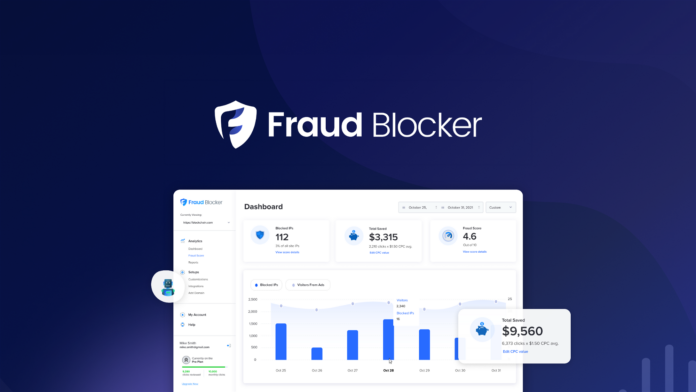
When someone mentions farming, your mind immediately wanders to images of crops growing in a field, right? You might think of corn, wheat, cabbage, lettuce, etc. You might even be hip enough to think of aquaculture. But there is a new big money way to farm without having to worry about crops of any kind. It is called click farming.
The click farm concept has been around for many years. But compared to traditional farming, it is relatively new. It didn’t even come in to play until the advent of pay-per-click (PPC) advertising and social media. So, it’s a relatively new phenomenon when measured against traditional agriculture.
How does click farming work? Is it something you should get involved in? These questions, and more, will be answered in the following paragraphs. Just know this: the people most affected by click farming are not big fans of it. That should give you some indication of whether it’s a good idea.
The Basic Premise

The basic premise of click farming is to set up an organization with the sole purpose of perpetrating what is known as click fraud. As the term implies, click fraud is actually a crime. It is also morally and ethically reprehensible. Click fraud destroys marketing budgets; it inflates advertising costs; it ruins company reputations.
A click farm is a business entity that employs an army of people and the latest technology to incessantly click on advertisements, videos, social media posts, and the like. In so doing, fraudsters enrich themselves at the expense of those they victimize.
A Classic Example

A classic example of a successful click farm would involve a fraudster who sets up a fake advertising platform through which he can generate traffic for advertisers. He sells ads to his victims and then places them on a variety of websites. These are PPC ads, so advertisers are only charged when the ads are clicked.
The fraudster then hires workers to sit behind computers or mobile devices, visiting targeted websites and clicking on the ads. There is never any intent to visit the advertisers’ websites or buy their products and services. The only goal is to click the ads as many times as possible. Every click represents another charge to the advertiser.
Click farming can be used to drive revenue through fraudulent clicks. But it can also be used in other ways:
1. Boosting Videos
Video platforms like YouTube charge advertisers based on the number of views a particular video gets. So in order to run up ad charges, fraudsters can set up click farms where workers seek out videos, watch for a second or two, and then click ‘like’. Likes represent positive views to YouTube. More likes equal higher ad revenue.
2. Social Media Impressions

A similar model for click farming involves artificially inflating social media impressions in order to drive ad revenue. In much the same way that YouTube basis advertising on video views, social media ad publishers charge advertising rates based more on impressions than anything else.
A fraudster can utilize a click farm to like and share posts incessantly. By artificially inflating impressions, a fraudster can make it seem as though targeted social media posts are getting more attention than they really are. Higher ad revenues are just around the corner.
One of the most successful click farms of all time was uncovered in Thailand back in 2017. This particular farm utilized 500 mobile phones and nine computers to artificially inflate social media engagement on WeChat. The perpetrators were allegedly paid $4,400 per month to do the work.
Labor Costs and Law Enforcement
Given that ad fraud and click farming are illegal, click farm owners need to be incredibly careful about what they do. This includes being very choosy about where they want to set up. Click farm owners look primarily for two things: cheap labor and lax law enforcement. Find those two things and running a successful click farm is possible.
In terms of labor costs, click farmers want to keep them as low as possible. They will look for locales where people are willing to work for next to nothing. In terms of law enforcement, operators also look for locations where the authorities don’t care or have higher priorities.
Labor costs and law enforcement differences between countries are such that click farms are often located in Southeast Asia. Thailand, Bangladesh, and India are very lucrative locations for click farms.
There Are Other Ways

Fraud Blocker, a company that produces click fraud detection software by the same name, is quick to point out that click farming is just one method of perpetrating click fraud. There are other ways to do it. For example:
- Click Bots – Click bots do much the same thing as click farming with one exception: instead of utilizing human workers, automated bots do the work. They work around the clock, incessantly clicking on links, liking videos, etc.
- Affiliate Marketing Scams – Some fraudsters apply the click fraud model to affiliate marketing. They set up fake websites loaded with affiliate ads and then just click away.
- Tiny Ads – Fraudsters with fake ad publishing sites create tiny ads that generate clicks through ad stacking, accidental clicks, and other means. The ads are so small they cannot be seen by a human eye.
The list goes on and on. Click fraud is a very real problem that costs advertisers billions of dollars annually. It is a pretty lucrative crime because it’s easy to pull off and advertisers are willing to accept a certain amount of fraud as being normal and okay.
Whether it is click farming or some other type of ad fraud scheme, ripping off advertisers is big business. Should you do it? Absolutely not. Click farming and other forms of ad fraud are illegal, unethical, and just plain immoral. There is never a valid excuse for stealing from other people, even if you target businesses under the false impression that they can afford it. Don’t do it.








